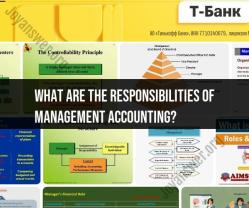How to start your own credit and debt counseling service?
Starting a credit and debt counseling service involves several steps and considerations to ensure its success. Here's a comprehensive guide:
Research and Planning:
- Market Research: Understand the demand for credit and debt counseling services in your area. Identify the target audience and their needs.
- Competitor Analysis: Study existing credit counseling services to identify their strengths, weaknesses, and areas where you can differentiate.
Legal and Financial Considerations:
- Business Structure: Choose a suitable business structure (sole proprietorship, LLC, etc.) and register your business with the appropriate authorities.
- Licensing and Certification: Check the legal requirements and obtain necessary licenses or certifications for offering financial advice.
- Insurance: Consider liability insurance to protect your business in case of legal claims.
Develop a Business Plan:
- Services Offered: Define the range of services you'll provide, such as debt management plans, budgeting advice, credit report reviews, etc.
- Target Market: Outline your target market segments and how you'll reach them.
- Financial Projections: Create detailed financial projections, including startup costs, operating expenses, and revenue forecasts.
Establish Your Brand:
- Brand Identity: Develop a compelling brand name, logo, and overall visual identity.
- Online Presence: Create a professional website detailing your services, expertise, contact information, and educational resources.
- Marketing Strategy: Plan marketing initiatives, including social media campaigns, partnerships with local organizations, and educational workshops.
Build Expertise and Credentials:
- Education and Training: Acquire relevant qualifications in finance, counseling, or related fields. Consider certifications from recognized organizations.
- Continuous Learning: Stay updated with industry trends, laws, and financial best practices through ongoing education.
Operational Setup:
- Office Setup: Establish a physical office or consider remote counseling options.
- Technology and Tools: Invest in software for financial analysis, client management, and data security.
- Staffing: Hire qualified counselors if needed and ensure they align with your business values and ethics.
Client Relationships and Service Delivery:
- Initial Consultations: Offer free initial consultations to assess clients' needs and propose suitable solutions.
- Customized Counseling: Develop personalized plans for each client, focusing on debt reduction strategies, budgeting, and financial education.
- Ethical Practices: Adhere to ethical guidelines and maintain client confidentiality.
Compliance and Quality Assurance:
- Regulatory Compliance: Stay updated with laws and regulations related to credit counseling and consumer finance.
- Quality Control: Implement processes to ensure the quality of counseling services provided to clients.
Evaluate and Adapt:
- Feedback and Evaluation: Gather feedback from clients to improve services continually.
- Adaptation: Be flexible and willing to adapt your services based on changing market demands or regulatory requirements.
Starting a credit and debt counseling service requires a combination of financial expertise, counseling skills, legal compliance, and a commitment to helping clients achieve financial wellness. Consider consulting with legal and financial professionals for specific guidance tailored to your location and circumstances.
What steps are involved in initiating a personal credit and debt counseling service?
Initiating a personal credit and debt counseling service can be a daunting task, but it's a positive step towards financial well-being. Here's a breakdown of the key steps involved:
1. Gather information:
- Debt assessment: List all your debts, including amounts owed, interest rates, and minimum payments. This gives counselors a clear picture of your situation.
- Income and expenses: Track your income and expenses for a month or two to understand your cash flow and identify areas for potential savings.
- Credit report review: Obtain your free credit report from each major bureau (AnnualCreditReport.com) to check for errors and inconsistencies.
2. Research and choose a counselor:
- Accreditation: Look for agencies accredited by the National Foundation for Credit Counseling (NFCC) or the Financial Counseling Association of America (FCAA). These ensure quality and ethical standards.
- Services offered: Compare services like budgeting counseling, debt management plans, credit repair assistance, and pre-bankruptcy counseling. Choose an agency that aligns with your needs.
- Fees and payment options: Some agencies offer free initial consultations, while others charge fees. Understand the cost structure and payment options before committing.
3. Contact and schedule an appointment:
- Call or visit the agency website to schedule an initial consultation. Be prepared to discuss your financial situation and goals clearly.
- Ask questions about their process, counselor qualifications, and communication preferences (phone, email, etc.).
4. Attend the initial consultation:
- This meeting is crucial to establish rapport and assess your situation. Be honest and open about your financial challenges.
- Discuss your goals and desired outcomes. The counselor will explain potential solutions and answer your questions.
- Decide if you want to proceed with their services.
5. Follow through and participate actively:
- If you choose to work with the agency, commit to participating actively in counseling sessions and following their recommendations.
- Provide necessary documents and updates as needed.
- Be patient and persistent as achieving financial goals takes time and effort.
Remember, seeking help is a sign of strength and proactiveness. Don't hesitate to clarify any doubts or concerns throughout the process.













